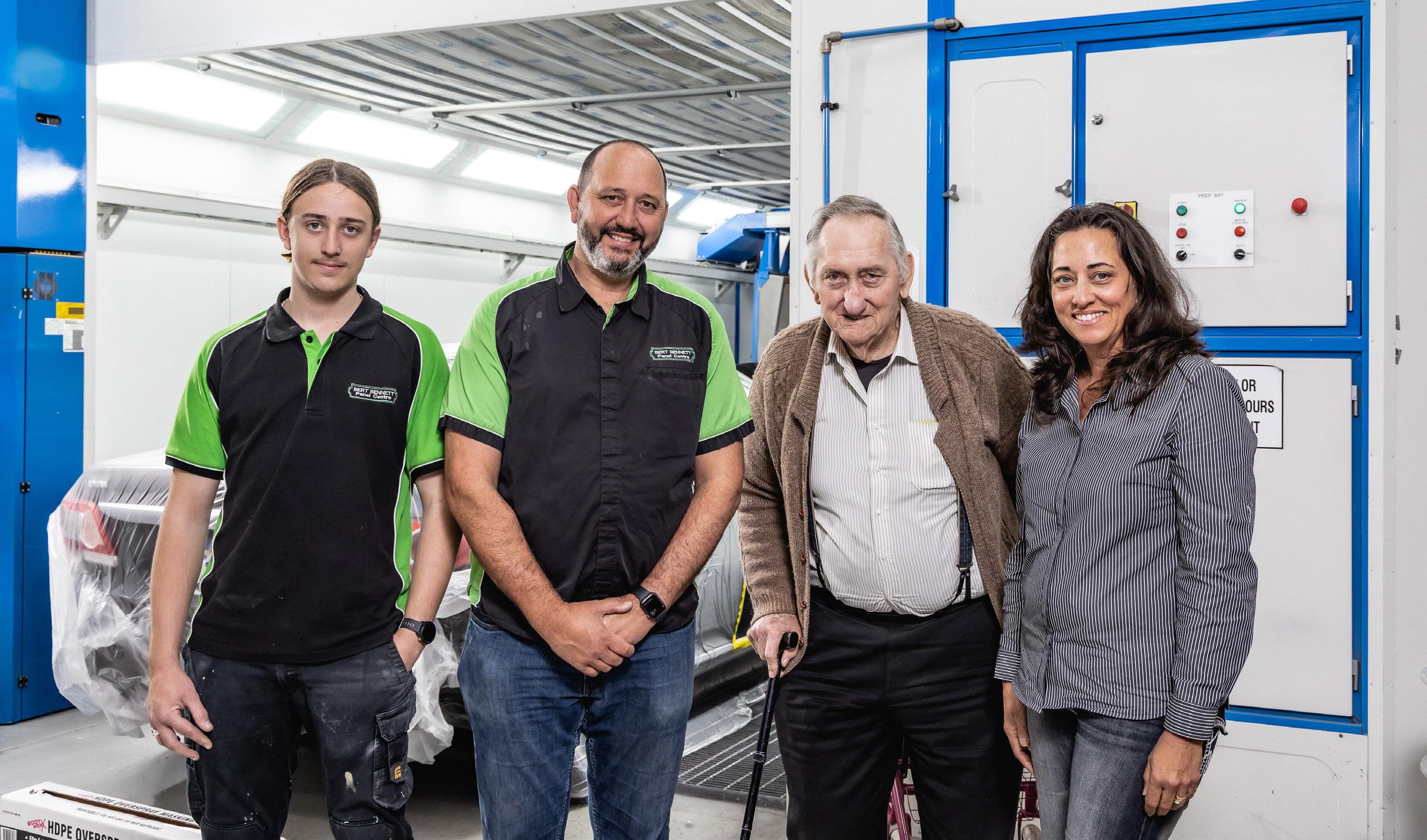
5 minute read
IS YOUR CUSTOMER SERVICE KEEPING UP WITH YOUR CUSTOMERS?
The huge advancements in automotive technology over the past two decades have required workshops to invest in tools and knowledge if they want to stay in business. All well and good for the practical tasks of fixing vehicles, but by contrast, research has shown that the customer service experience many workshops deliver has not kept pace with this change.
A very successful workshop owner admitted that the only thing he does differently from 25 years ago is email customers their invoice and sends SMS service reminders. While good old faceto-face customer service is still just as important ever, there is a range of new products and technologies that enable businesses to improve the customer service experience, but they are not being readily embraced.
Whether it’s just human nature or people getting stuck in their ways, lots of workshop owners prefer to stick to the same methods they’ve always used. However, it’s important to realise that these new customer experience products are emerging as a direct result of customer demand. While adapting to change can sometimes be a challenging process, it’s important for business owners to understand that it’s not about them; it’s what the customers want.
Modern customers have different desires and expectations that are shaped by other kinds of customer experiences that they go through on a daily basis. It’s not just other workshops that you’re being compared to – it’s other businesses like banks, dentists, doctors and e-commerce operators.
That means that if you want to deliver the kind of experience that lives up to your customers’ expectations, chances are you might need to start changing your ways and update some of your out-of-date notions about how to relate to customers and keep them happy.
1. Keeping in contact*
The greatest asset in any business is the customer database. A neglected database means the workshop depends only on customers finding and using the business. The sensible alternative is to regularly keep in contact to keep your customers close and out of reach of your competitors.
Modern technology, such as email and SMS, makes keeping in contact easier than ever. The time to contact customers could include service reminders, 24-hour booking reminders, registration and WOF reminders (location dependent), repair progress updates, repair images, monthly specials and holiday messages.
This all sounds obvious, but the number of workshops that fail to carry out these basic communications is quite astounding. If your point-of-sale software doesn’t have these features, a great starting point is Capricorn’s AutoBoost, which has an SMS facility.+
2. Educating your customers through videos
Customer education videos are all about educating them on why certain repairs or maintenance is required, with the idea being that the video will do the selling for you. The key with educational videos is to make them part of your process.
3. Online bookings
This is still a step too far for some workshops, but you can trust the fact that some customers will appreciate it. Today’s consumers are used to booking haircuts, gym classes, doctor’s appointments and just about everything else online. The industry needs to get with the times and start making this service available.
What could be easier for a customer at home browsing the internet and receiving an SMS service reminder containing a direct link to an online booking form? It’s a one-minute process that’s faster than a phone call and more inclined to be acted on immediately rather than the customer having to follow up.

4. Finance solutions
Most franchise groups and dealerships are now offering some form of finance facility. Don’t confuse this with offering direct credit. With their finance facility, they outsource the collecting of the payment to a third-party finance company. The dealership gets paid up-front less a small, agreed commission.
Such organisations include Ezypay and AfterPay. Offering this payment option helps those customers who may not have the funds available today and hence removes the ‘I can’t afford it’ objection.
5. Loan cars
Most workshops believe customers push service due dates because they can’t afford the service. In many cases, the real reason is that the customer is too busy and they will be inconvenienced if they don’t have their car for a day.
Obviously, running a fleet of loan cars is a significant cost. That’s why it’s called a loan car and not a courtesy car. One option is to hire your loan cars for a small nominal fee of say $10 to $20 per day, so that it becomes cost neutral.
6. Visual triggers
Washing, vacuuming, cleaning tyres, deodorising, cleaning the dash or reattaching a loose mud guard are all examples of visual triggers. They might seem like a pain to you but it’s something your customer will notice and appreciate. Convenience and trust are the main reasons customers choose a workshop. The little extra things are what makes it harder for them to leave you.
Taking the time to review your customer service experience and update your processes is something that can pay big dividends over the long term. Are you keeping up with the times and grasping new technologies, or are you still doing things the same way you did 20 years ago?
* Applicable privacy legislation may constrain or prevent the use of an individual’s personal information for certain purposes. Applicable spam legislation may also operate to impose restrictions on the sending commercial electronic communications in certain circumstances. Members who have questions regarding the implications of these laws on their business should seek independent advice.
+ AutoBoost is a third party service provider. The terms of use for the version of AutoBoost made available to Capricorn Members is located https://www.capricorn.coop/-/media/project/csl/capricorn/terms-andconditions/common/autoboost---terms-and-conditions.pdf









